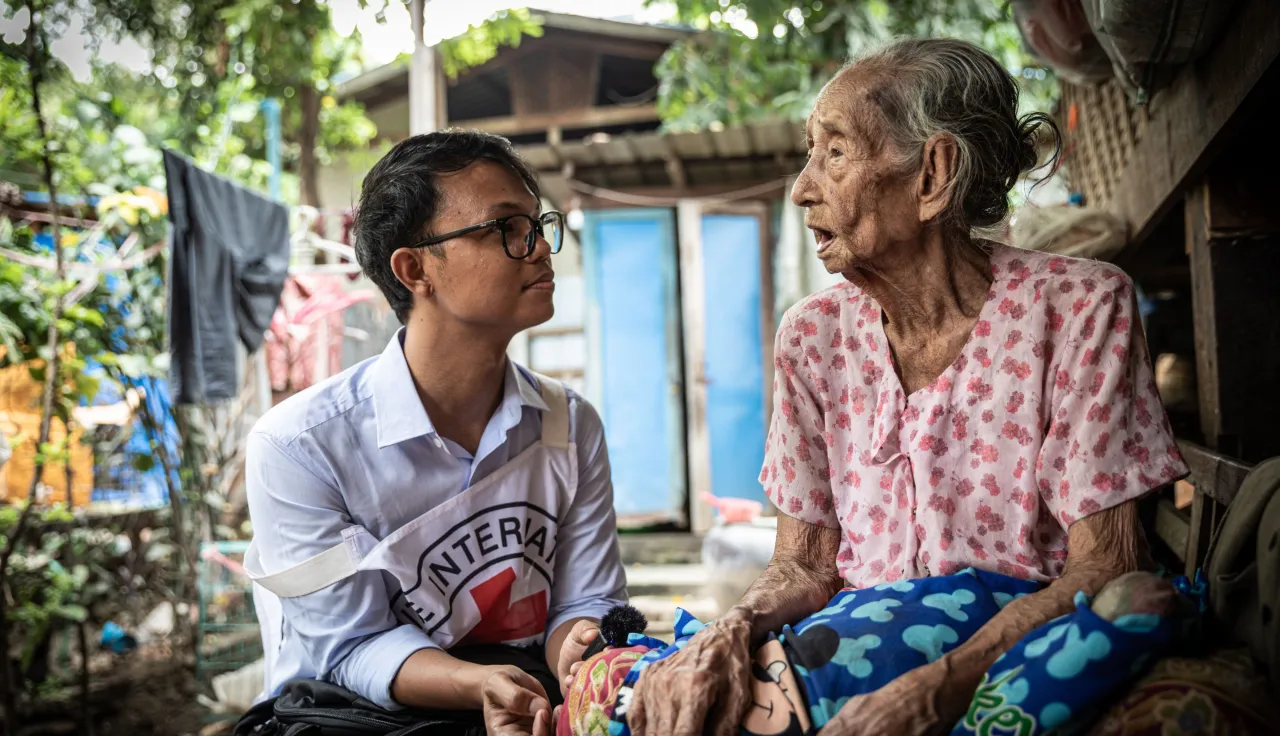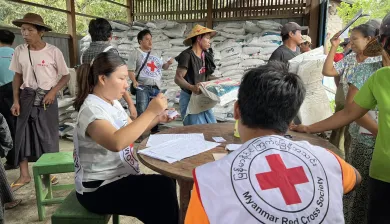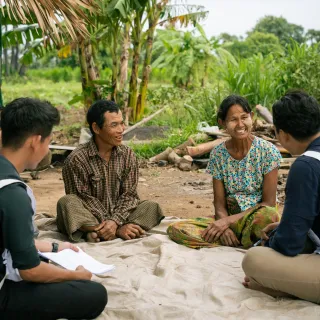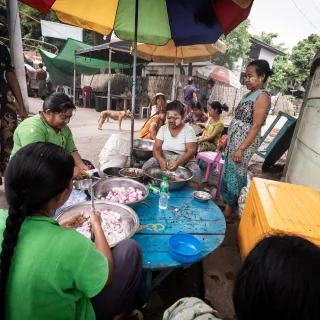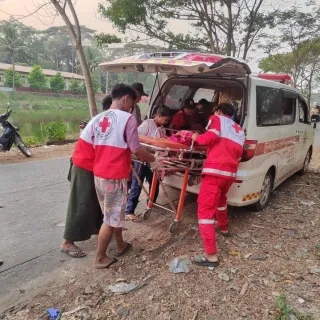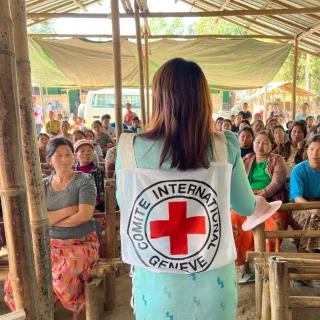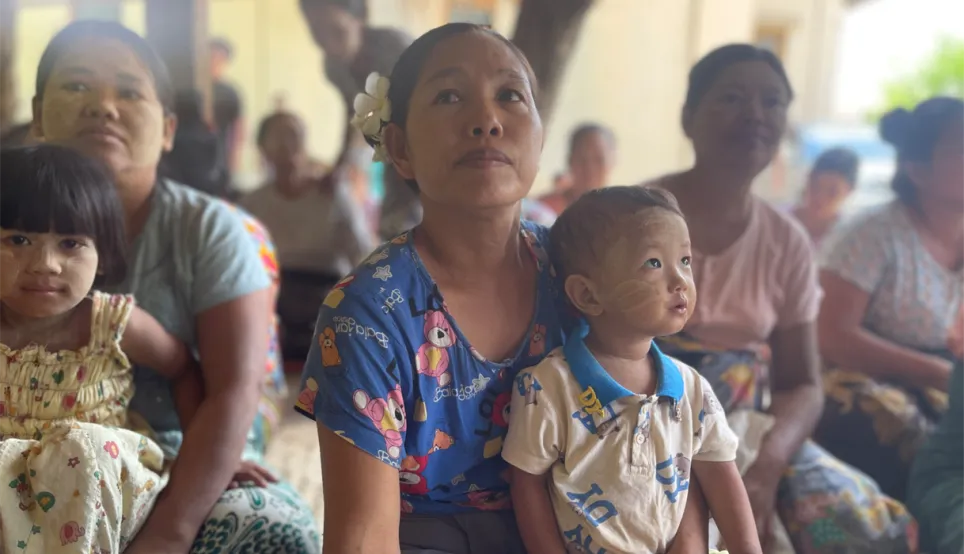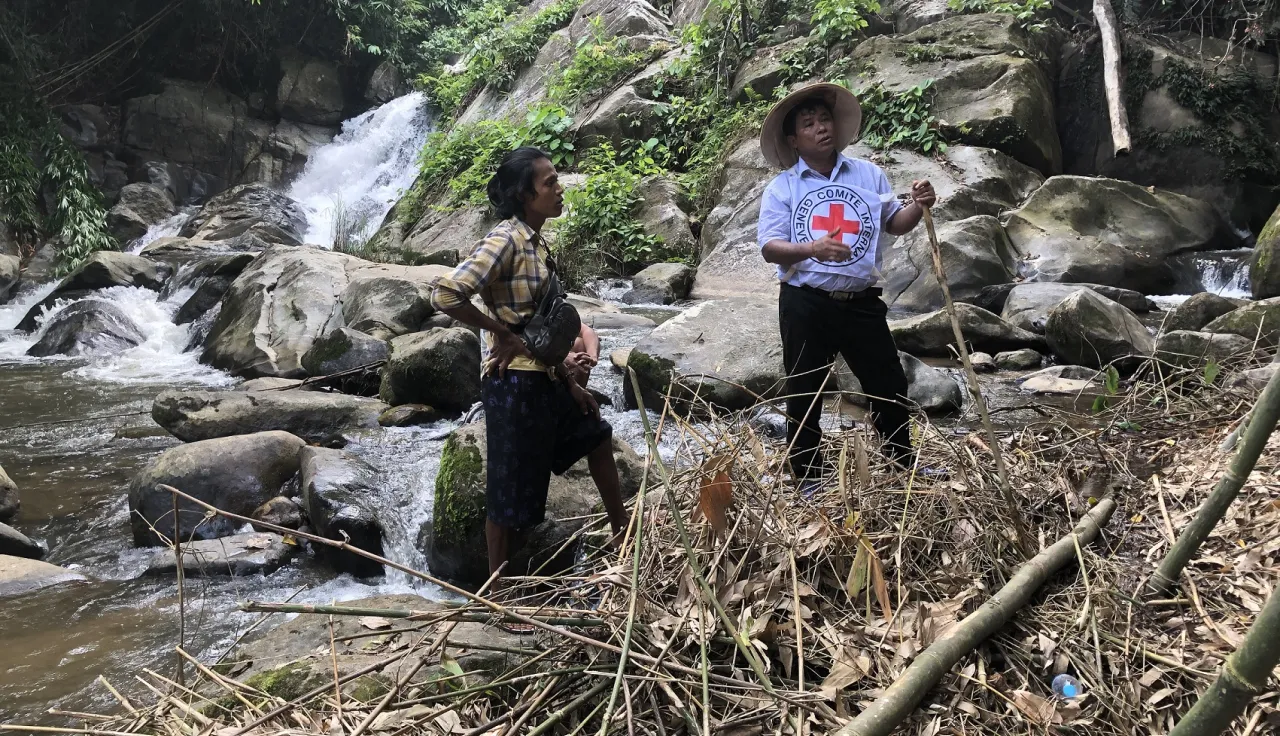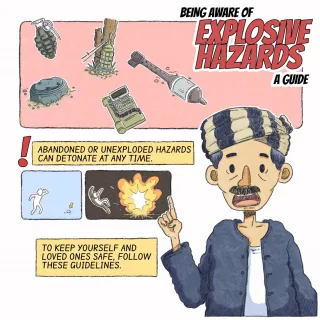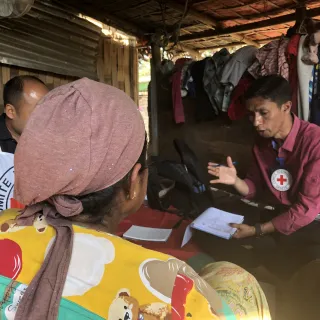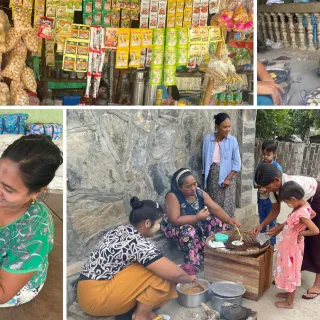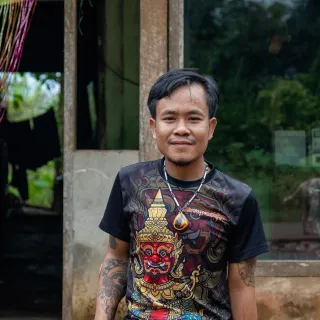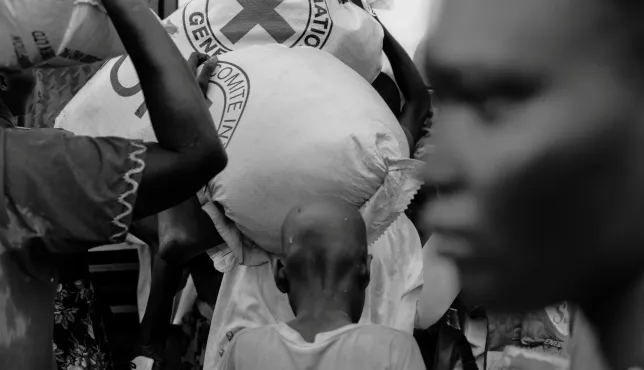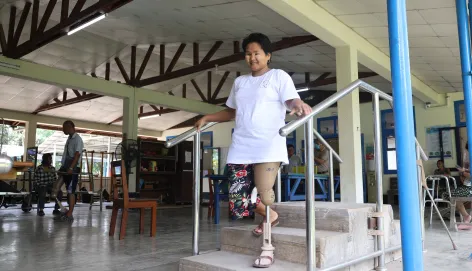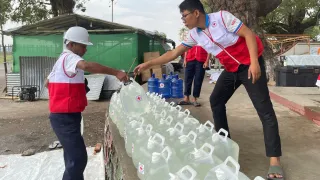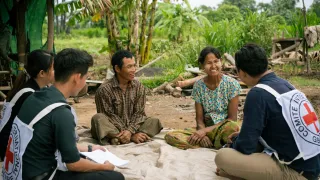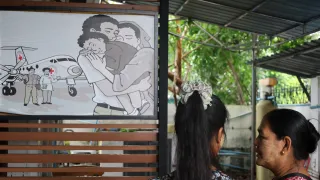Devastating earthquake: Response and recovery in Myanmar
The 28 March 2025 earthquake caused widespread destruction in central Myanmar, injuring thousands, displacing many families, and severely damaging homes and infrastructure. The disaster struck communities already affected by protracted armed conflict and violence.
The ICRC has been supporting affected communities through emergency and early recovery assistance, working closely with the Myanmar Red Cross Society (MRCS), the wider Red Cross and Red Crescent Movement, and local partners. This has included improving access to safe drinking water, providing food and essential household items, supporting shelter and improving living conditions in displacement sites, assisting hospitals and ambulance services, supporting physical rehabilitation centres treating people injured by the earthquake, and contributing to the dignified management of the deceased.
Our teams remain present, continuing to support recovery and stand alongside communities as they rebuild.

